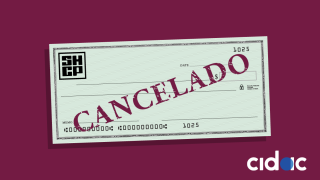Now that he has finally been freed in order to be able to redirect his life in this world of criminality and abuse, there are two indelible characteristics in my head concerning this man of light and shadows who is Diego Fernández de Cevallos: his infinite disposition for being of service and present under difficult circumstances, and his extraordinary capacity for resolving problems, negotiating situations, and contributing to the nation’s progress. His human quality and his vision as a statesman exceed all other facets of his life as an attorney of interests and causes that are on occasion difficult to defend: the nature of his businesses has never restrained him from being solicitous of the issues and problems of others, and he has always had a special ability for “appearing” at key moments or in crisis situations. No less momentous, he has unfailingly been predisposed to devoting himself to national affairs, and never mistook national affairs for others. The terrible experience that he has undergone is, finally, over, permitting and enjoining us to think of the public Diego, Diego the statesman.
His abduction distressed many, and at the same time served for others to collect on debts and experience what the Germans call schaudenfraude, relishing in another’s misfortune. I suppose that a personality as strong and as involved in such a vast array affairs and themes inexorably generates passions, but it is also too facile a way to ignore, and, above all, disregard, the relevance and importance of a person such as Fernández de Cevallos in the political panorama. The figure of Diego countenances speculation on something historians have always cautioned against: what would have happened had Diego been president instead of the two PAN Presidents.
Fortunately, it is unnecessary to enter into speculation excessively. Diego’s momentum through the legislative power in the eighties and nineties provides irrefutable data as well as tangible examples that illustrate what, predictably, he would have done, at least in terms of his modus operandi, on reaching the presidency. In that era, while Fox literally donned donkey ears on the occasion of one presidential address to the natio to illustrate his anger with the old system, Diego devoted himself to negotiating many of the few reforms that were advanced during that period and that emerged as extraordinary when compared with subsequent ones. Thanks to his lawmaking leadership of the ranking legislative minority, when he was anointed “Chief Diego”, reforms were approved in banking, electoral, agricultural, and commercial matters. Easy enough said, but had Salinas not encountered an opposite number such as Diego, it is perfectly feasible that even the scarce advancement of that epoch would have been impossible. Many will argue that this latter scenario would have been preferable, but it is evident to any reasonable individual that, for over 20 years, the country has been able to survive -economically as well as politically- thanks to that relatively modest series of reforms.
Had he been president during the post-PRI era, that is, from 2000, it is reasonable to suppose that Diego would have exhibited a negotiating attitude, would have sought out the PRI, but probably also the PRD –his pragmatism supersedes any ideological stumbling block- for advancing the modernization project of the country. Beyond what the government of a pragmatist would have been able to achieve or any speculation on what would have comprised his government’s agenda, there are three things that appear indubitable to me: first, it would have had clear objectives; second, it would have had a strategy to attain these, and three, it would have transcended the hindrances and psychological and historical barriers that characterize and bar most members of PAN from constructing a national agenda. I entertain not the least doubt that his logic would have been one of achieving the objectives and not of collecting on past invoices.
The crux of the matter is that two PANist presidents, each with his own personality and characteristics, have had a sole common denominator: their absolute unwillingness to deal with the PRIists. Lest the first PANist government would have attacked the PRI to the death immediately on assuming the presidency in 2000, the anti-PRI strategy ceased to have any viability after 2001 and became a mere parapet and justification for the lacks and insufficiencies of those administrations. It is evident that one possible strategy would have been that of giving the PRI an ultimatum: institutionalize, or we will respond with the full force of the law to all of the evils caused by their governments. In retrospect, it is impossible to determine how feasible or successful a project of that nature might have been, but no doubt assails me as to whether the opportunity for doing so was available in 2001. After that juncture, everything proceeded to another plane and the PRI became the only practicable counterpart. Fox and Calderón decided not to take this upon themselves and, in so doing, condemned their administrations to the disaster that history will consign to them.
I have no idea of how many pragmatic PANists like Diego exist, but they certainly have not been presidents. The complexity of divided government is not minor, but the former has been accentuated by the absolute absence of pragmatism and recognition of the realities of power in the post-PRI era. Observing the behavior of the most prominent politicians of both stripes from 2000 on, I am left with the distinct impression that we would have been able to advance to a much greater degree had there been the capacity and the negotiating disposition to effect this. Institutional structures are most important, but it is very easy to exaggerate their relevance in a country with such weak institutions. Under these circumstances, effective leadership could have done magic.
Diego, as all of us, has his fallibilities, but within the context of a country with enfeebled institutions that lived for years under the yoke of authoritarianism and the discipline imposed by unwritten rules, he has been the prototype of the “one-man institution”, that rare species of person –of which there are many- who engages in diverse activities –those of government, political parties, business, journalism, etcetera- who is committed to a vision of the State and who places this above other considerations, and without the existence of whom it probably would have been impossible to compensate for the personal as well as institutional shortcomings of our public life. What wields an impact is that this “species” developed at all, particularly because this practically did not occur in most countries that experienced submission to military and authoritarian dictatorships.
It is impossible to imagine what the extent of success or failure of a PANist government headed by a person like Diego would have been in the post-PRI era. What I do not entertain any doubt about is that he would have at least made the attempt, and in this the difference would have been enormous.
Diego






Comments